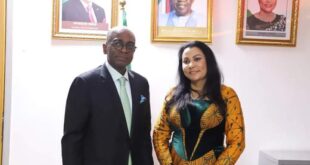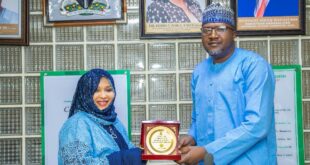The Economic Community of West African States (ECOWAS) is poised to remove roadblocks of regional integration by investing time and resources on reducing tariff and non-tariff barriers in West Africa.
Speaking at the opening of the 89th Ordinary Session of the ECOWAS Council of Ministers in Abuja, President of the ECOWAS Commission, Omar Touray, said in order to diagnose the state of the region, four strategic objectives have been identified, noting that these would be the focus of “our management in the next four years. We call this the Commissions 4 by 4 (4 x 4) comprising specific deliverables or results to be realised within our mandate.”
Touray said one of the objectives was to deepen regional integration, adding that: “Here, we intend to invest time and resources on reducing tariff and non-tariff barriers in our community and improve the business environment for our private sector; fully operationalise the regional payment system to reduce difficulty of transactions in local currencies and over-reliance on international currencies (the US dollars/euros); and introduce ECOWAS visa at the first instance for diplomatic and service passports.”
He also stated that another objective is to enhanced peace and security, where there is an intention to fully implement the ECOWAS Action Plan against terrorism, fully operationalise the ECOWAS Maritime Security Architecture, fully operationalise and build synergy with the National Early Warning and Response Centres and the ECOWAS Early Warning and Response Mechanism respectively, and continuously building ECOWAS mediation and response capacity.
Touray also said another of the strategic objective is good governance, including good corporate governance to build confidence in the private sector, stressing that: “We will be focusing on building a stronger regime against anti-constitutional changes of government and supporting our Member States to deepen democracy. Our target here includes completing the democratic transitions in Burkina Faso, Guinea and Mali, and strengthening both ECOWAS Court and ECOWAS Parliament to play their respective roles in improving governance in our region.”
He said ECOWAS is equally interested in inclusive and sustainable development under which there is the intention to increase “our commitment to food
security, regional highway development, energy access, disaster response, gender mainstreaming, and climate action.”
In her address, the Minister of State for Foreign Affairs, International Cooperation and Community of the Republic of Guinea-Bissau and President of the ECOWAS Council of Ministers, Dr. Carla Suzi Barbosa, lamented that the economies of the countries of West Africa have witnessed the regressive effects of the COVID-19 pandemic and the war in Ukraine/Russia through food crisis and scarcity of other products that constitute essential goods for the regional populations.
She said: “Furthermore, our sub-region has been troubled by human insecurity and violent extremism, and more recently by new waves of coups d’état guided by uncertain compromises, which represents elements of fragility of some Member States in implementing mechanisms that guarantee the sustainability of the values of democracy and good governance.”
 The Commerce Africa African Reneissance
The Commerce Africa African Reneissance




